- Home
- Matt Rogers
The Will Slater Series Books 1-3 Page 2
The Will Slater Series Books 1-3 Read online
Page 2
He only saw the wire transfers materialise in his account.
He rose off the chair with enough speed for the legs to creak underneath him and — just as his financier had instructed — got back to work.
2
London
England
Diana Edwards tucked her tiny fingers inside the ribbed cuffs of her raincoat as the sky darkened and the first of the day’s sleet began to fall from the sky.
Because it was her sixth birthday, her mother had finally allowed her to make the short trek home from school on her own. When the bell finally rang and she gathered her tattered beige backpack off its hook in the corridor and stepped out into the overcast afternoon, muscle memory had kicked in. She’d searched the faces of the hordes of parents bunched up around the school gates for her mother. She was accustomed to seeing the scrunched-up face with heavy bags under the eyes and heavily-chapped lips.
It took her a moment to remember that today was her special day.
Maybe her mother had taken the opportunity to start drinking a little earlier than usual.
Diana didn’t really want to go home all that much.
She trotted animatedly along the sidewalk, taking her time with her newfound freedom, staring at the familiar sights of Kingston upon Thames as she passed them by. She had never been able to take it slow along these streets. Her afternoons usually consisted of her mother holding a vice-like grip around her little wrist, tugging her along without much concern for how Diana felt about the whole thing. She didn’t appreciate it when her mother was in a rush. It was only ever to get to her favourite bottles, anyway.
Sometimes the skin around Diana’s wrist changed colour, when her mother was unusually desperate to get home.
She stopped by the familiar sight of the most well-known sculpture in the suburb of Kingston, an enormous row of twelve red post boxes all leaning on each other. She stood still on the cobbled path and spent a drawn-out minute admiring the strange sight. She only ever caught glimpses of it, usually.
Now, she could take her time.
She felt like she was doing something wrong by lingering.
Mother was always in a hurry, after all.
Maybe it’s normal to always be in a hurry.
Pouting with uncertainty, she set off along the typical route, suddenly nervous. Passers-by noticed her trotting by and smiled as she went past.
Diana smiled back.
She felt the downpour starting to fall across her upper back and ducked her head, pulling the raincoat’s hood over her golden locks. She allowed herself a cheeky smile as she did so. When her mother wasn’t around, she had all the time in the world.
Sometimes Diana got in trouble for wanting to pull her hood up. She didn’t like to slow her mother down. It was usually met with a verbal tirade.
Never physical.
Steve was the only one who was allowed to hit her.
She didn’t much like it when that happened.
Diana found her building and hurried undercover as the afternoon sky went entirely dark and the sheets of rain began to intensify. She scurried into reception, which consisted of nothing more than a small room with plaster walls and a shadowy staircase in the far corner.
London had a limited amount of space, after all.
‘Diana!’ a voice cried. ‘Where’s your mother, dear?’
Diana recognised the tone and smiled up at Beryl, the kind-faced elderly woman who manned the reception desk at all hours of the day. ‘I’m a big girl now!’
‘I’m sure you are,’ Beryl said, smiling warmly back. ‘You shouldn’t be walking home on your own though, my love.’
‘Mummy said it’s okay.’
‘I might need to talk to Mummy about that. Will you tell her to come down later?’
Diana shrugged, even though she knew it would be impossible to drag her mother off the couch after six in the evening. Something in the bottles she drank from made her hard to understand in the evenings. ‘Okay.’
‘Go on now, dear. Get upstairs.’
Diana smiled and nodded and hurried up the stairwell, a twisting cylinder permanently plagued by a strong, musty aroma — the scent of damp boots leaving imprints on the carpeted stairs, which no-one ever bothered to wash off. She hummed softly to herself as she made the journey up to the fourth floor, where her home was tucked into a cramped corner of the apartment complex.
They didn’t have much room, but it seemed like no-one in London did.
There were two people in the narrow fourth floor corridor when Diana stepped out of the stairwell and began the trek down to the other side of the complex. She recognised both of them — she always seemed to pass them by at roughly the same time each afternoon. She’d never spoken to them. Her mother didn’t like hanging around in public unnecessarily.
Maybe today would be the start of a new pattern in her life.
She skipped along the carpet, ignoring the make-up stains and crusty remnants of God-knows-what caked into the floor. The first person she passed refused to look at her — an elderly woman who lived three doors down, sporting a permanent scowl across her features at all times.
Diana smiled as she passed her by.
The woman brushed crumbs off the shoulder of her faded overcoat and bustled straight past, ignoring Diana entirely.
Diana frowned, and continued.
The second person seemingly kept to himself just as much as the elderly woman did, but his demeanour seemed warmer. He appeared to be in his early twenties, with dark skin and a mop of unkempt brown hair atop his head. Diana decided to attempt her pleasantries again and smiled up at the man as he strode toward her.
He returned the smile, nodding imperceptibly.
As Diana shuffled past him, her insides warmed.
It wasn’t important in the grand scheme of things, but it provided an effective rebound from the harshness of the first passer-by.
She found the panelled black door to her apartment and pushed it open. It was unlocked. She stepped through into a tiny entrance hallway with a cluster of open doorways bunched tightly together along the walls, leading into a smattering of different rooms with just as little space as the one she currently stood in.
Already, she could hear the raised voices resonating through the apartment.
A deep knot formed in the pit of her stomach. Diana physically grimaced as she heard the vile insults being thrown back and forth.
‘You were probably off fucking some cheap whore!’ a female voice roared.
Mummy.
‘It’s none of your business where I fuckin’ was, bitch!’ a deep voice returned, sharp enough to cut through the air and make Diana jolt in alarm. ‘I pay most of the rent, so shut your mouth.’
Steve.
Diana bowed her head and moped into her room, trying not to disturb them. Steve hadn’t been around for long, but during the short stint he’d spent with them, he’d been awfully mean to her mother. Diana hated the way he treated her.
But there was nothing she could do about it.
She’d spoken up once.
Steve had taught her a lesson to never interfere again.
She dropped her schoolbag on the floor and leapt onto her bed. The usual routine took over. She operated out of instinct whenever she heard Mummy and Steve arguing. The automated actions unfolded without a hitch.
She slotted her head between the two pillows resting against her bedhead and pressed down over her ears with the fluffy material. The biting voices became muffled, drowned out by the thick pillow over her head.
Silently, dejectedly, she sobbed into the pillowcase.
3
Hadhramaut Valley
Yemen
The sun beat down relentlessly, scorching the baked earth.
The plain stretched for thousands of miles in every direction, dotted intermittently with dry rocky mountain ranges spearing into the sky, blocking the view of the land beyond. A narrow, two-lane dirt road twisted along the plateau, the only si
gn of civilisation amidst the deserted valley.
A newcomer with no knowledge of the geographical location would have assumed they had reached the edge of the earth itself, where most ordinary life shrank away, replaced by something more intense and primal.
There were no rules out here.
For Will Slater, it was temporarily home.
He strode with measured paces along the side of the dirt track, littered with potholes and only traversable by four-wheel-drives and other heavy-duty vehicles. Archaic Toyota Land Cruisers made up ninety percent of the vehicles that had roared past over the last few days. They seemed to be all that anyone drove out here, most of them beat to shit and barely functioning.
Slater had been subconsciously hoping that one of the speeding pick-up trucks would slow down to enquire what he was doing out here.
But it seemed that nobody cared.
They went about their lives, keeping their noses out of other people’s business, avoiding any kind of confrontation with strangers.
Over the course of his time in Yemen, he had come to learn that nearly everyone he’d stumbled across was plagued by a certain reservedness, a suspicion that carried through into their mannerisms.
Out here, everyone was scared.
Slater wondered exactly what they were tense about.
He’d caught broader flashes of what might be troubling them. The poverty. The isolation. The rampant unemployment. The civil war that occasionally roared into fruition all around him, whether that presented itself through a bloody close-quarters skirmish or the distant crack of gunshots resonating around the outskirts of the villages he’d passed through.
But so far, the language barrier had prevented him from holding any kind of meaningful conversation. He’d only managed to observe from a distance.
That suited him just fine.
He’d been observing from a distance his whole life.
When the opportunity presented itself, he was happy to dive into conversation. He didn’t shy away from it. But solitude didn’t bother him.
It never had.
He wouldn’t have lasted a day in his previous occupation if it did.
For what felt like the first time in weeks — despite the fact that he’d set off from the village of Fughmah earlier that morning — a roadblock materialised down the road. In the shimmering heat that seemed to waft off everything in sight, Slater found it hard to make out exactly what lay ahead.
It seemed to be a single hut, thrown together haphazardly with the scrap materials that lay on hand at the time. He recognised it as a security checkpoint, seeing as he’d strolled past many similar abandoned structures over the course of the day.
This one, however, was occupied.
The tiny blip of humanity in the middle of the desolate valley accentuated the toll that the civil war had dealt on Yemen. As Slater got closer to the security checkpoint he made out a trio of individuals, all dressed in identical uniforms. It made him realise how alien this area of the planet was. It felt strange to lay eyes on a group of people so far out from the towns and villages scattered throughout the Hadhramaut Valley.
They were equally shocked by his appearance on the horizon.
Slater saw them reaching for the battered old rifles hanging by their side. He froze in his tracks, kicking up twin clouds of orange dust as the soles of his boots ground to a halt on the uneven valley floor. He sized up the distance between himself and the checkpoint — close to a hundred feet.
They would need to have expert weapons training to hit him with their first volley of shots. He might be able to avoid the initial barrage, but a quick glance in either direction revealed that he had nowhere to go. The only cover for dozens of miles in any direction was the guards’ hut itself. It would only be a waiting game before he caught a cluster of lead and it put him down for good.
He knew what that felt like.
An ancient instinct speared through him, recalling the sensation of twisted flesh and the sight of arterial blood.
Then the trio of militants relaxed as they saw that Slater was unarmed.
He stayed put for a long, drawn-out minute, sizing up their mannerisms.
Satisfied of no immediate threat, he continued toward the checkpoint.
The document in his back pocket would hopefully see him through to the road beyond without incident. The tasrih — written entirely in Arabic, indecipherable to Slater — had been acquired from a policeman stationed along the eastern border of Yemen. It had required a sizeable cash payment.
Slater had crossed into Yemen from Oman three weeks earlier.
When the policeman asked — using the limited English skills he possessed — what Slater had been doing in Oman, he’d found himself at a loss for words.
He’d clammed up and offered more money in exchange for the policeman’s discretion.
The man had obliged.
Now, Slater opted not to reach for the tasrih.
Not just yet.
The policeman had promised it would see him through almost any roadblocks while moving between Yemen’s occupied territories.
So far, it had worked three out of three times.
He wondered if it would make it through a fourth inspection.
Upon handing over the document back in the east, the policeman had advised him to turn around and head back to Oman. Apparently, due to a number of reasons — the intense civil war and unrest one of the major factors — soldiers at security checkpoints could opt to deny a tasrih on a whim and throw him into a lawless Yemen jail without reason.
Slater had nodded politely and assured the man that he would be able to handle any problems that came his way.
Now, he wasn’t so sure.
He drew closer to the trio, keeping his arms by his sides, refusing to reach back for the tasrih or even reach up to wipe the thin sheen of sweat off his forehead, drawn out of his pores by the stifling heat. The plastic water bottle tucked into his other back pocket was nearly empty — he had been on the road for three and a half hours, now.
In his old life, a cakewalk.
But not in these conditions.
He drew to a stop in front of the three men, all regarding him with unrestrained surprise.
‘Afternoon,’ he said, which made them recoil even further at the sound of his accent.
He wondered how long it had been since they’d met an African-American man out here in the Hadhramaut Valley.
If ever.
None of them responded. They didn’t speak English.
Slater hadn’t expected anything else.
He lifted a finger in a non-threatening manner, keeping his expression placid, and gestured behind him at his rear pocket.
‘Tasrih,’ he said slowly.
They stared back, uniformly mute.
He repeated the word.
One of the men nodded, as if to say go ahead, but touched a hand to his Kalashnikov rifle.
Just in case.
Slater reached back tentatively as the wind howled across the flat valley floor and slid the single sheet of faded paper out of the back of his jeans.
He handed it over.
The trio of guards crowded around the tasrih, studying it all too intently. Slater guessed that this would be the most exciting interaction they would have in months. The beat-up old Toyotas trundling through the checkpoint every day would be as familiar to these men as their own families.
Slater imagined he might be the first tourist in these parts in years.
He dropped his guard, ever so slightly. It wasn’t a conscious decision, simply a response to the muted silence of the three soldiers and their prolonged scrutiny of the document in their hands. It had been nearly a month since Slater had seen conflict — and he quickly realised that it had dulled his instincts.
By the time he started to suspect that these three men might not be as accommodating as the other militants he’d encountered throughout Yemen, the man on the left had seized his Kalashnikov and swung the barrel up
to point directly between Slater’s eyes.
‘No,’ the man said, teeth bared.
A single syllable that spelled disaster for anyone in the immediate vicinity.
4
Never had Slater seen such a sudden shift into mob mentality.
The other two soldiers kept their eyes firmly planted on the document before them while the first man reached for his weapon. When the motionless pair looked up and noticed the shift in atmosphere, it charged their adrenalin levels like a super-drug.
Slater watched the pair mask twin smiles of glee. They reached for their own weapons, hurling the tasrih away into the wind like a useless coupon. Slater’s stomach sank at the sight of the document drifting away across the baked earth. It meant that there was only one way the following confrontation would go down.
Instantly, the trio fell on him, jabbing him in the ribs and between the shoulder blades with the scratched barrels of their Kalashnikovs. Slater’s eyes instinctively darted to each weapon’s safety — all were switched on.
The guns — in their present state — were useless.
The three men didn’t know he was aware of that. They were using their automatic weapons as a group intimidation tactic, designed to send bolts of crippling fear through the hearts of the victims they prodded.
Slater’s resting heart rate barely shifted, but he acted like it did.
He started to breathe heavily.
One of the trio cackled and turned to his two comrades, chattering away in Arabic and gesticulating wildly at Slater. Spurred on by the heightened tension, one of the others stepped forward and planted two hands on Slater’s shoulders, shoving him with enough force to send him sprawling back into the dirt.
He got to his feet, brushed off his clothes, and let a hint of fear sparkle across his eyes.
He’d been warned about groups like this. Soldiers who reacted off their gut instincts rather than any kind of official procedure. The policeman who had gifted him the tasrih had explicitly told him as much.
Somehow, he thought he might have been able to reason with those types of men when he encountered them.

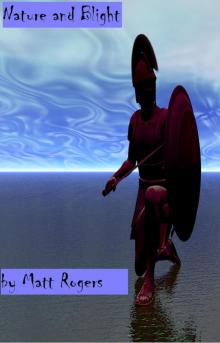 Nature and Blight
Nature and Blight The Wolves of Third Clan
The Wolves of Third Clan Ghosts
Ghosts Bear
Bear The Will Slater Series Books 1-3
The Will Slater Series Books 1-3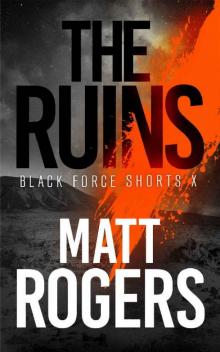 The Ruins
The Ruins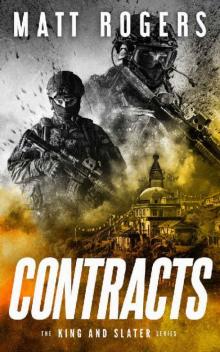 Contracts
Contracts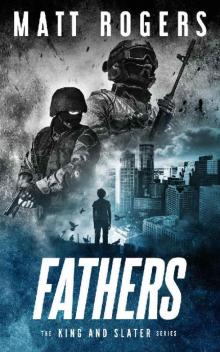 Fathers
Fathers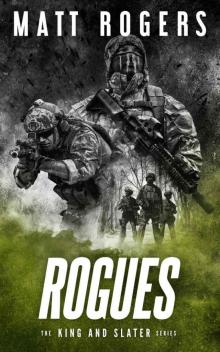 Rogues: A King & Slater Thriller
Rogues: A King & Slater Thriller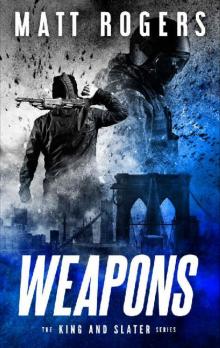 Weapons
Weapons Ciphers
Ciphers Lynx
Lynx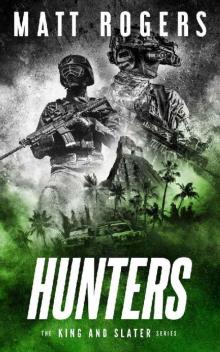 Hunters
Hunters Of Superior Design
Of Superior Design The Hidden: A Black Force Thriller (Black Force Shorts Book 4)
The Hidden: A Black Force Thriller (Black Force Shorts Book 4) Blood Money
Blood Money The Hidden_A Black Force Thriller
The Hidden_A Black Force Thriller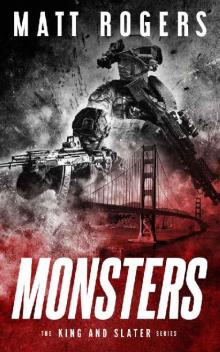 Monsters
Monsters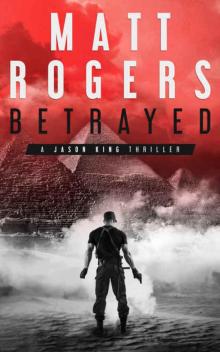 Betrayed: A Jason King Thriller (Jason King Series Book 4)
Betrayed: A Jason King Thriller (Jason King Series Book 4)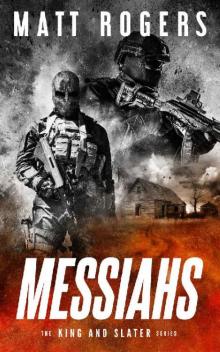 Messiahs
Messiahs The Wicked_A Black Force Thriller
The Wicked_A Black Force Thriller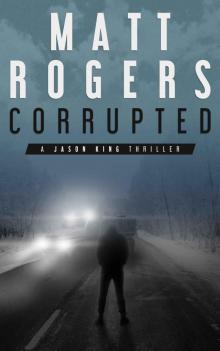 Corrupted: A Jason King Thriller (Jason King Series Book 5)
Corrupted: A Jason King Thriller (Jason King Series Book 5)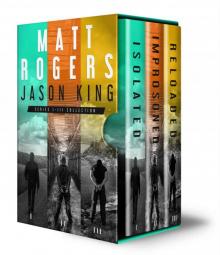 The Jason King Series: Books 1-3
The Jason King Series: Books 1-3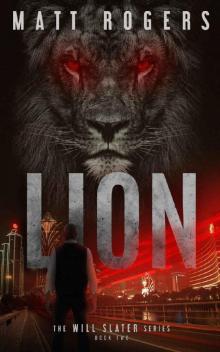 Lion
Lion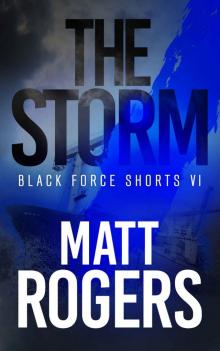 The Storm: A Black Force Thriller (Black Force Shorts Book 6)
The Storm: A Black Force Thriller (Black Force Shorts Book 6) Slayers (Jake Hawkins Book 1)
Slayers (Jake Hawkins Book 1) Warrior: A Jason King Thriller (The Jason King Files Book 2)
Warrior: A Jason King Thriller (The Jason King Files Book 2)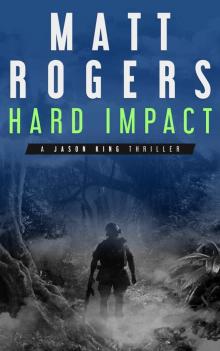 Hard Impact: A Jason King Operation (Jason King Series Book 0)
Hard Impact: A Jason King Operation (Jason King Series Book 0) The Wicked: A Black Force Thriller (Black Force Shorts Book 7)
The Wicked: A Black Force Thriller (Black Force Shorts Book 7) Warrior_A Jason King Thriller
Warrior_A Jason King Thriller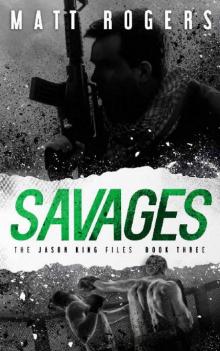 Savages: A Jason King Thriller (The Jason King Files Book 3)
Savages: A Jason King Thriller (The Jason King Files Book 3)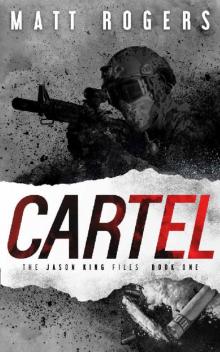 Cartel: A Jason King Thriller (The Jason King Files Book 1)
Cartel: A Jason King Thriller (The Jason King Files Book 1)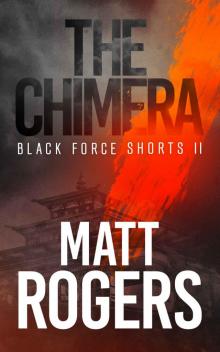 The Chimera_A Black Force Thriller
The Chimera_A Black Force Thriller The King: A Black Force Thriller (Black Force Shorts Book 8)
The King: A Black Force Thriller (Black Force Shorts Book 8)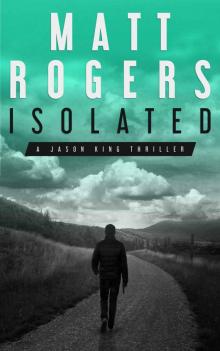 Isolated: A Jason King Thriller (Jason King Series Book 1)
Isolated: A Jason King Thriller (Jason King Series Book 1) The Victor: A Black Force Thriller (Black Force Shorts Book 1)
The Victor: A Black Force Thriller (Black Force Shorts Book 1)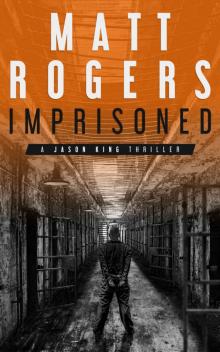 Imprisoned: A Jason King Thriller (Jason King Series Book 2)
Imprisoned: A Jason King Thriller (Jason King Series Book 2)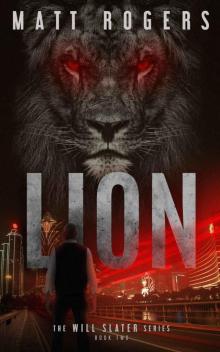 Lion: A Will Slater Thriller (Will Slater Series Book 2)
Lion: A Will Slater Thriller (Will Slater Series Book 2)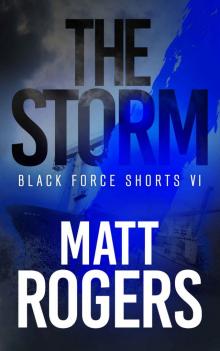 The Storm_A Black Force Thriller
The Storm_A Black Force Thriller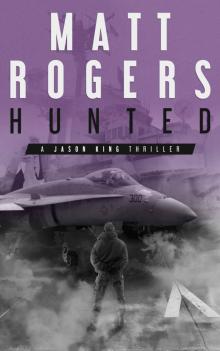 Hunted: A Jason King Thriller (Jason King Series Book 6)
Hunted: A Jason King Thriller (Jason King Series Book 6) The Coast: A Black Force Thriller (Black Force Shorts Book 5)
The Coast: A Black Force Thriller (Black Force Shorts Book 5)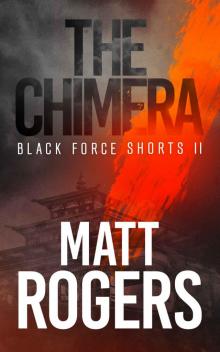 The Chimera: A Black Force Thriller (Black Force Shorts Book 2)
The Chimera: A Black Force Thriller (Black Force Shorts Book 2) The Coast_A Black Force Thriller
The Coast_A Black Force Thriller